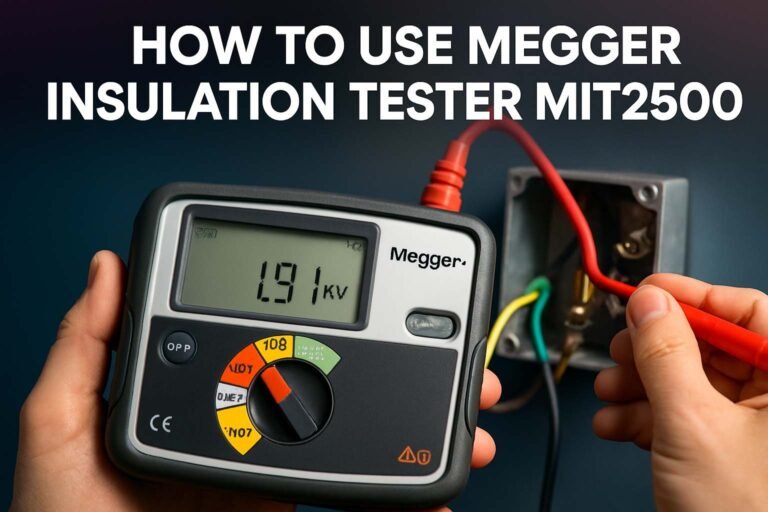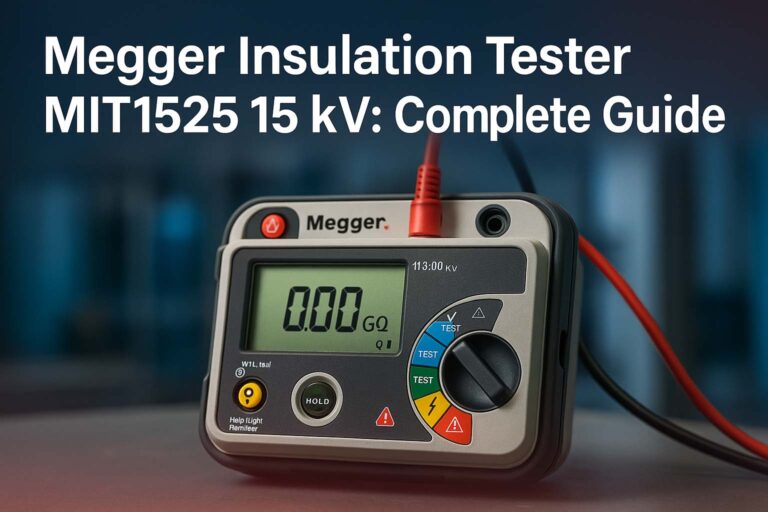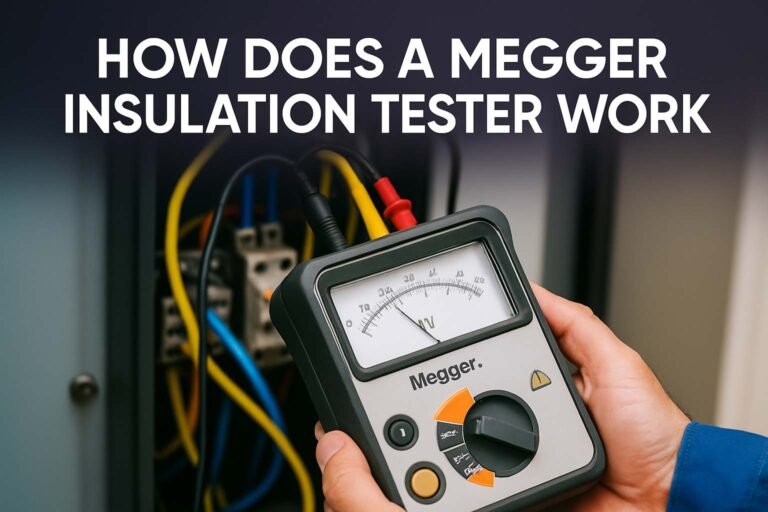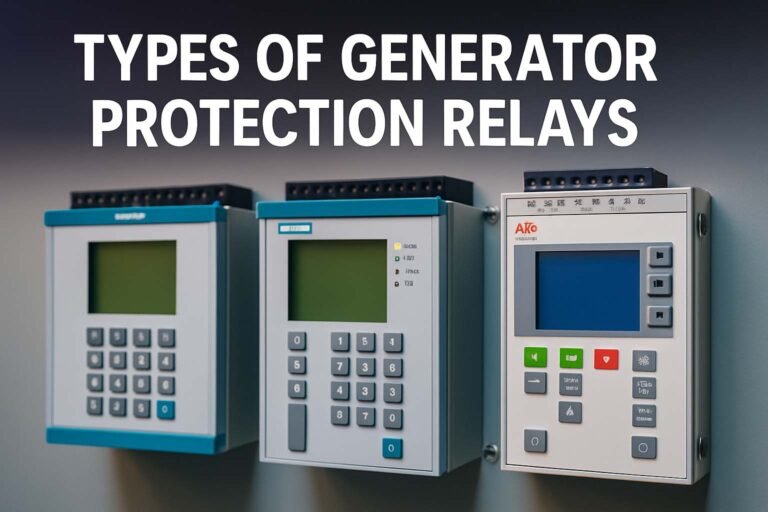How to Use Megger Insulation Tester MIT2500
The Megger insulation tester MIT2500 is a powerful diagnostic tool…

The Megger insulation tester MIT2500 is a powerful diagnostic tool…

The MIT1525 15 kV insulation tester is a powerful diagnostic…

The Fluke 1507 insulation tester is a compact, powerful tool…

Performing a megger insulation test for transformer is one of…

The BM5200 insulation tester by Megger is a reliable and…

The dielectric absorption ratio test is a key diagnostic tool…

When working with industrial motors, insulation resistance testing is crucial…

The Megger insulation tester MIT320 is a professional-grade device used…

Understanding the difference between megger and insulation tester is essential…

When it comes to testing the insulation resistance of high-voltage…

Understanding insulation resistance is vital in ensuring electrical systems remain…

A megger insulation tester 1000V is a vital tool for…

A megger insulation tester is a vital instrument used in…

Alternators are at the heart of power generation in most…

Alternators play a crucial role in electrical power systems. They…

Introduction Backup protection for an alternator plays a crucial role…

Generators are one of the most crucial elements in power…

Transmission lines are vital in transferring electric power from generation…

Understanding the types of faults in a power system is…

Alternators are critical components in power systems. They are responsible…